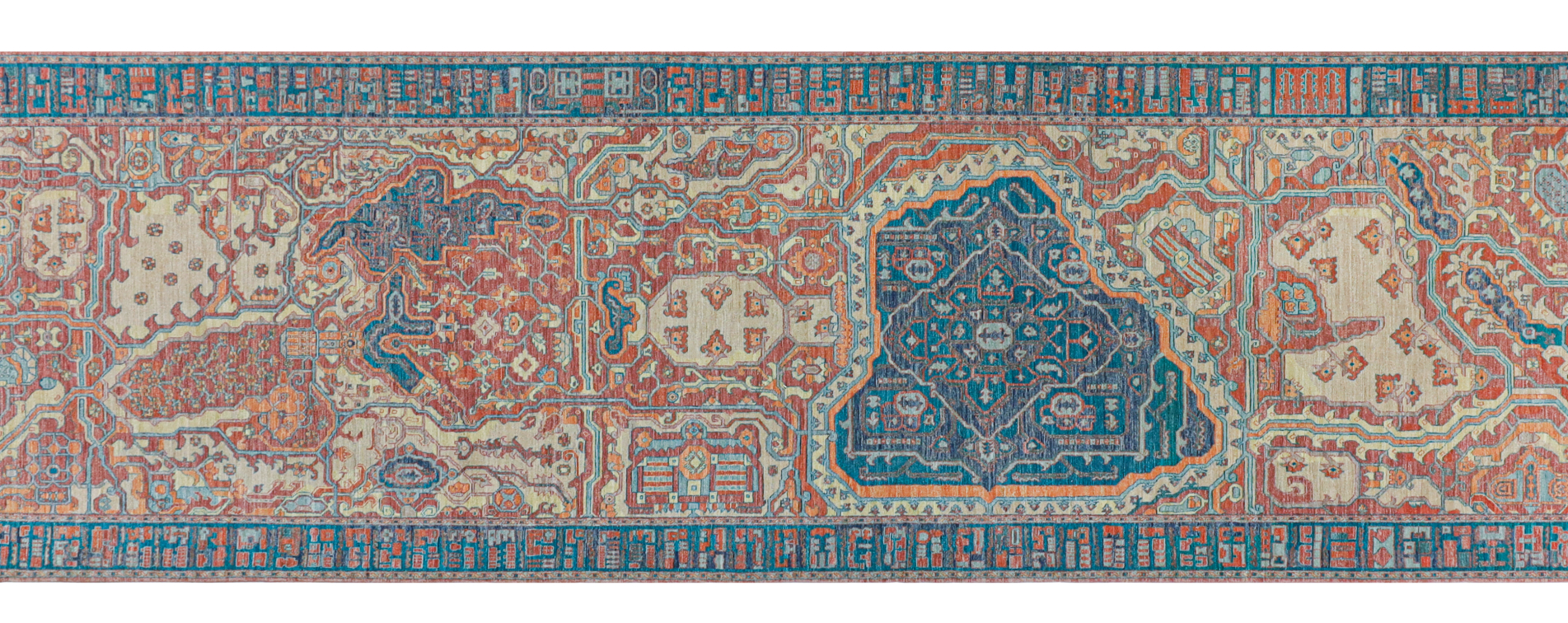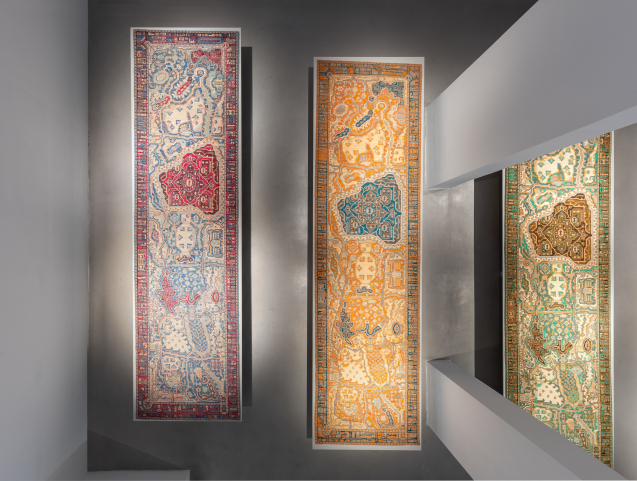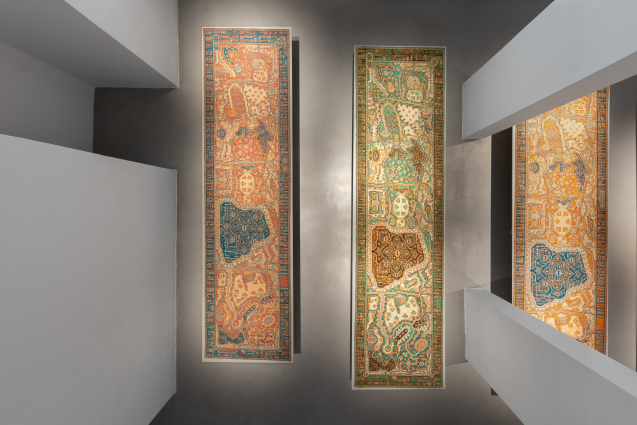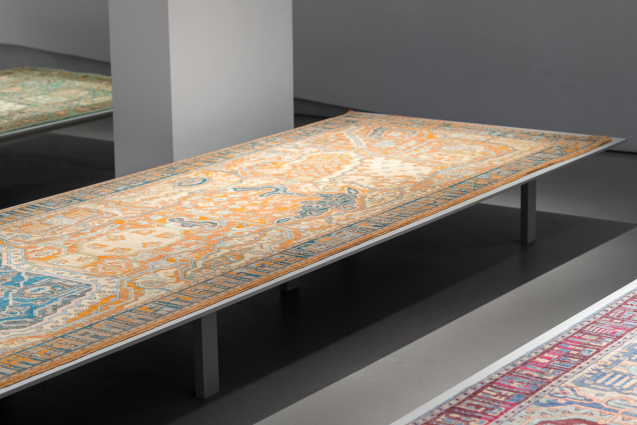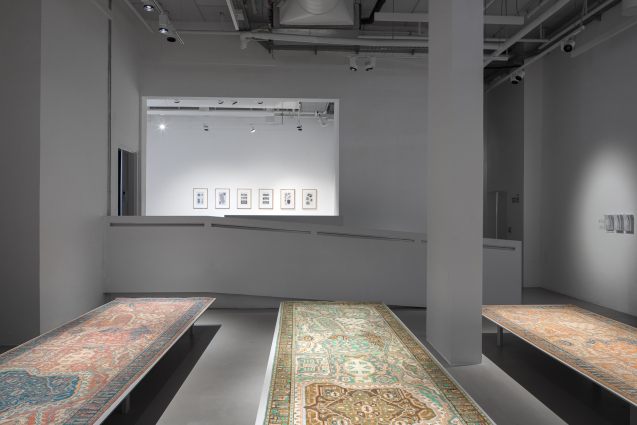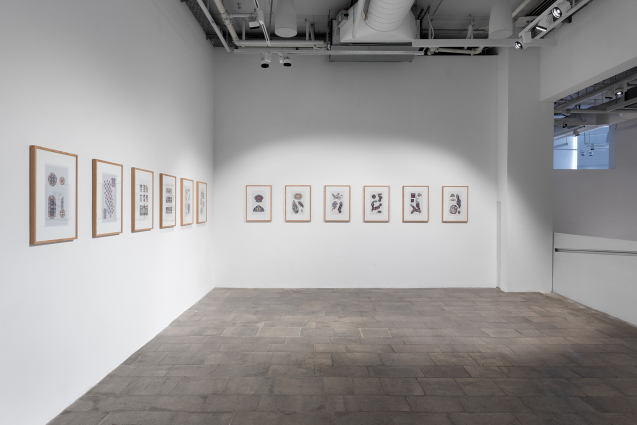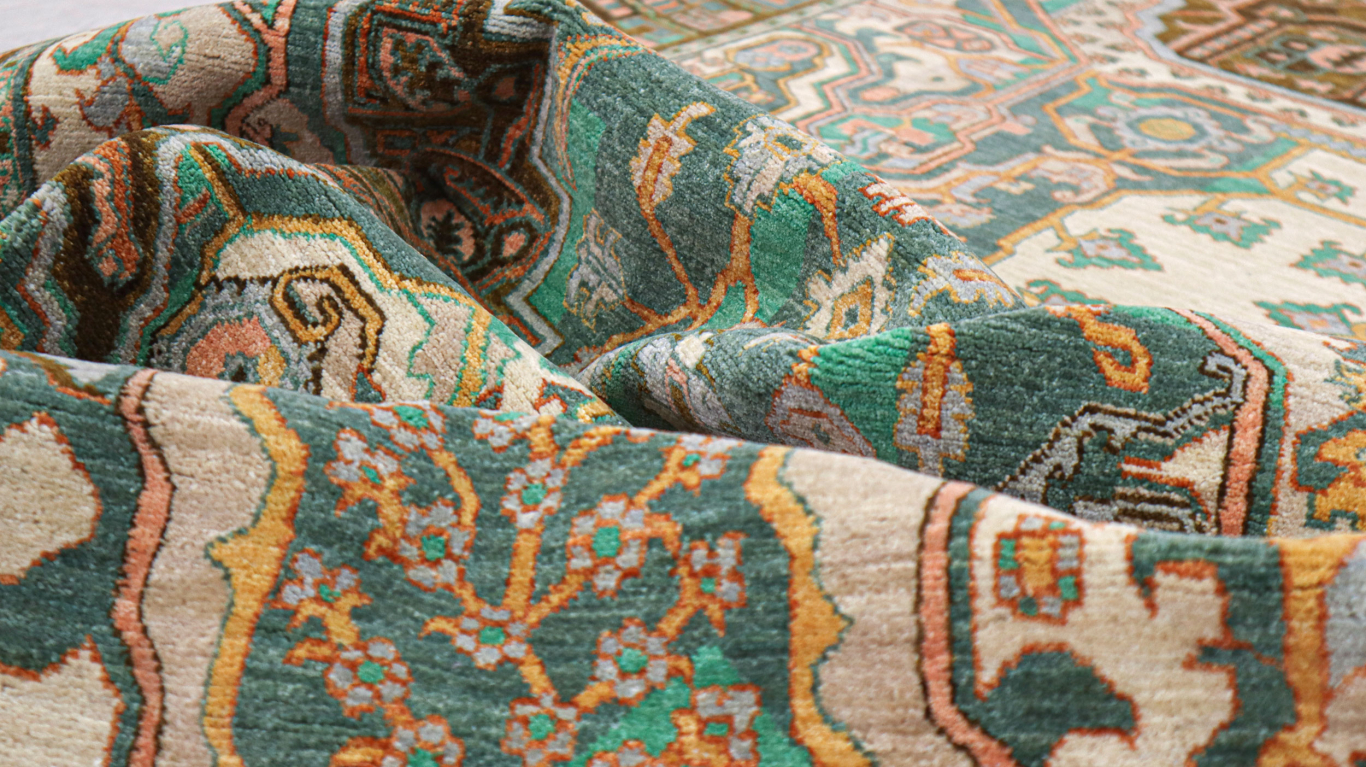It seems that the distance between East and West has never been greater. After years in which we thought that the poles were getting closer and the gaps were gradually narrowing, the last few months came and divided the world again into “us” and “them.” Surrounded by such noise, it is difficult to observe nuances, listen to whispers, remember how similar different cultures are, and to what extent they are connected and deeply influenced by one another.
Ido Michaeli undertakes the task of translation. Born into a family that hailed from an Arab country and raised in Israel, Michaeli, who now lives in New York, sets out to translate Central Park, in the heart of the West, into the language of the East, by turning it into a series of Persian carpets hanging on the gallery walls, which represent the changing seasons. As an immigrant who translates one set of codes to another, Michaeli tries to mediate an idea of nature from culture to culture, and like the artist, the carpets, too, pave their winding way between the United States, Israel, and Afghanistan.
A decade ago, when Michaeli moved to New York, he thought of Central Park as a tract of wilderness left intact. Only later did he discover that the park was meticulously designed to the last detail by landscape architects Olmsted and Vaux to make visitors feel as though they were walking inside a painting—engineered nature domesticated into a three-dimensional work of art.
In “The Craft of Translation,” Michaeli traces the western paradise to its eastern origins. The project connects the present-day West with the garden tradition from Mesopotamia, the cradle of civilization, and with the establishment of urban gardens as a response to the yearning for nature. Carpets were another way to bring nature into the domestic sphere. Inspired by the Persian garden, pairi-daêzã (paradise), they were meant to reflect Paradise as described in the Quran: four rivers emerge from a body of water, dividing both the garden and the carpet into four equal and symmetrical sections, symbolizing the...
Read More 